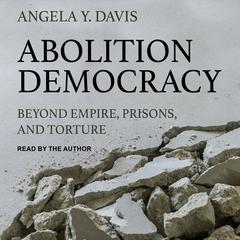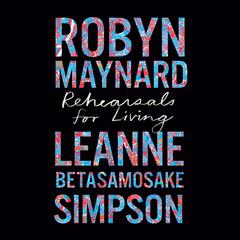 Play Audiobook Sample
Play Audiobook Sample
Abolition. Feminism. Now. Audiobook
 Play Audiobook Sample
Play Audiobook Sample
Quick Stats About this Audiobook
Total Audiobook Chapters:
Longest Chapter Length:
Shortest Chapter Length:
Average Chapter Length:
Audiobooks by this Author:
Publisher Description
As a politic and a practice, abolition increasingly shapes our political moment—halting the construction of new jails and propelling movements to divest from policing. Yet erased from this landscape are not only the central histories of feminist—usually queer, anticapitalist, grassroots, and women of color—organizing that continue to cultivate abolition but a recognition of a stark reality: abolition is our best response to endemic forms of state and interpersonal gender and sexual violence.
Amplifying the analysis and the theories of change generated from vibrant, community-based organizing, Abolition. Feminism. Now. surfaces necessary historical genealogies, key internationalist learnings, and everyday practices to grow our collective and flourishing present and futures.
Download and start listening now!
“Powerful, wise, and well-crafted…The book explains how organizing to end violence without turning to violent institutions such as prisons and the police as remedies, is how we learn what we need to do to make change possible…It gives us a name for what we want. Abolitionism. Now.”
— Sara Ahmed, author of Willful Subjects
Quotes
-
“A genealogy of the movements that brought us here, lessons learned, battles won and lost, and the ongoing collective struggle to build a thoroughly revolutionary vision and practice.”
— Robin D. G. Kelly, author of Freedom Dreams -
“Four visionaries…reveal the connections between state violence and intimate violence, between prisons and family policing, and between local and global organizing…The authors compel us to see the urgent necessity of abolition feminism now.”
— Dorothy Roberts, author of Torn Apart -
“This book is a lineage of words and visuals, showing us the beauty of our efforts and gently reminding us that we are not failing—we are learning and we are changing.”
— adrienne maree brown, author of Emergent Strategy
Abolition. Feminism. Now. Listener Reviews
-
" Would be great if more people chose to see and to know the systems that are in place that presently run this world and which the majority (including me) were/are entrained to believe are for our benefit, safety, and wellbeing of all; and that without them in place (we are programmed to think) chaos would ensue. What then would the possibilities for us, our planet, and true health and well-being be? To have the space, time, knowledge, and desire to imagine and create a truly different world and planet based on benevolence and care for everyone and everything. "
— Chocol8Mamma, 3/27/2023
About the Authors
Angela Y. Davis is a political activist, scholar, author, and speaker. She is an outspoken advocate for the oppressed and exploited, writing on Black liberation, prison abolition, the intersections of race, gender, and class, and international solidarity with Palestine. She is the author of several books, including Women, Race, and Class and Are Prisons Obsolete? She is the subject of the acclaimed documentary Free Angela and All Political Prisoners and is Distinguished Professor Emerita at the University of California, Santa Cruz. Davis is the recipient of the 2020 Cultural Freedom Prize from Lannan Foundation.
Beth E. Richie is head of the Department of Criminology, Law, and Justice and professor of Black Studies at the University of Illinois at Chicago. She is the author of Arrested Justice: Black Women, Violence, and America’s Prison Nation and Compelled to Crime: the Gender Entrapment of Black Battered Women. Dr. Richie’s work has been supported by grants from the Robert Wood Johnson Foundation, the Ford Foundation, and others, and she has been awarded the Audre Lorde Legacy Award from the Union Institute, the Advocacy Award from the US Department of Health and Human Services, and the Visionary Award from the Violence Intervention Project, and the UIC Woman of the Year Award.
Erica R. Meiners is a Professor of Education and Women’s and Gender Studies at Northeastern Illinois University—a public, urban institution in Chicago where she is also a union member of UPI: the University Professionals of Illinois. As the Bernard J. Brommel Distinguished Research Professor, she teaches classes in justice studies, women’s and gender studies, and educational studies. Meiners is the author of a number of books including Right to Be Hostile: Schools, Prisons, and the Making of Public Enemies, Public Acts: Disruptive Readings on Making Curriculum Public with Francisco Ibáñez-Carrasco, and with Therese Quinn, Flaunt It! Queers Organizing for Public Education and Justice.
Gina Dent is Associate Professor of Feminist Studies, History of Consciousness, and Legal Studies at UC Santa Cruz. She writes and teaches on race, feminism, popular culture, and visual art, and her current book project—Prison as a Border and Other Essays, on popular culture and the conditions of knowledge—grows out of her work as an advocate for human rights and prison abolition.



























